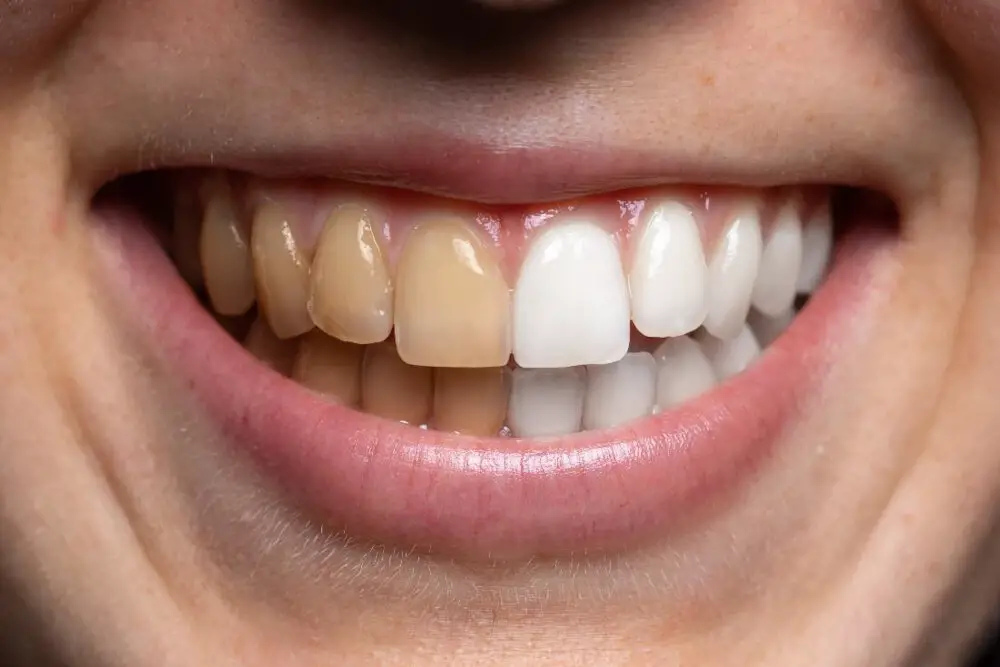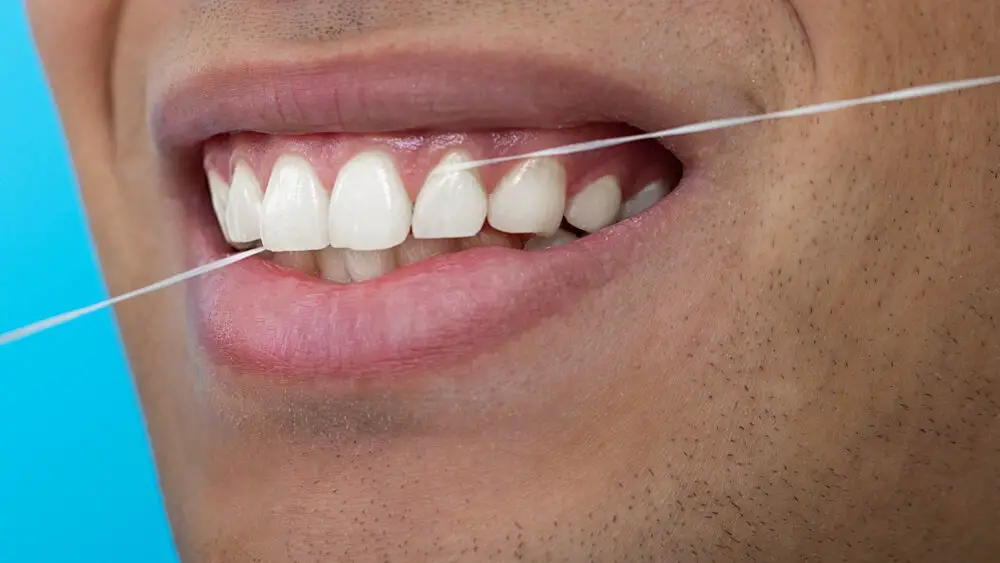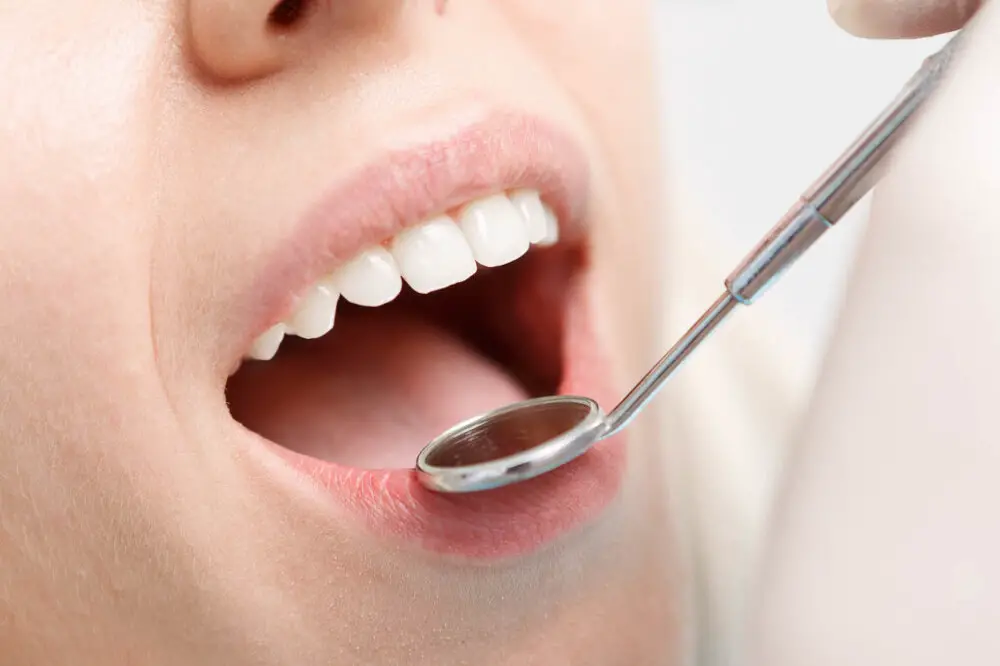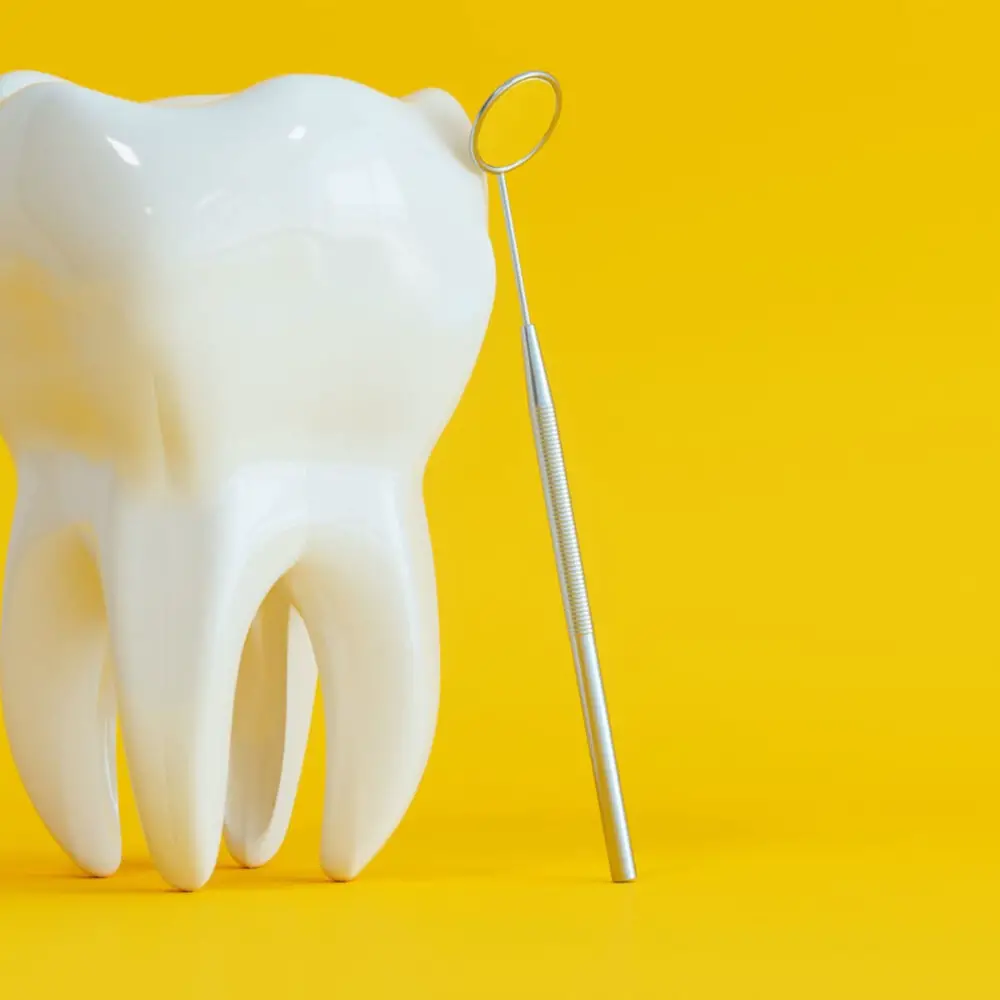Table of Contents

Teeth whitening is a cosmetic dentistry procedure that has gained immense popularity over the years. It is a quick and easy way to enhance the appearance of your teeth, giving you a brighter and more confident smile. With so many options available, from in-office treatments to at-home remedies, it’s no wonder that people are eager to try them out. But the question on everyone’s mind is how long will it last?The answer to that question is not straightforward, as the longevity of teeth whitening varies depending on the type of treatment and individual factors. Factors such as your lifestyle, diet, and oral hygiene habits can all affect the duration of your bright smile. In this article, we will explore the different types of teeth whitening treatments and provide you with insights into how long you can expect the results to last. So, whether you’re considering professional teeth whitening or looking for ways to maintain your pearly whites, read on to find out more.
Teeth whitening is a cosmetic dental procedure that aims to lighten the color of the natural teeth and remove stains or discoloration caused by various factors such as aging, smoking, and consuming certain foods and drinks. This treatment involves the use of bleaching agents, such as hydrogen peroxide or carbamide peroxide, which penetrate the enamel and break down the pigments that cause discoloration. Teeth whitening can be done in-office or at home using custom-made trays or over-the-counter products. While the results of teeth whitening are noticeable and can last for several months, the longevity of the brightness depends on various factors such as oral hygiene, diet, and lifestyle habits.
Maintaining white teeth is crucial for both dental health and personal appearance. Yellow or discolored teeth can be a sign of poor dental hygiene, which can lead to decay or gum disease. Additionally, having a bright, white smile can boost confidence and make a positive first impression. Teeth whitening can be an effective way to improve the color of your teeth, but it’s important to remember that the effects are not permanent. Regular brushing, flossing, and dental cleanings can help keep your teeth healthy and prevent discoloration. By taking care of your teeth, you can maintain your bright smile and ensure that it lasts as long as possible.
The article Teeth Whitening: How Long Will Your Bright Smile Last discusses the duration of the effects of teeth whitening procedures. It explains that the longevity of teeth whitening results depends on several factors, such as the type of whitening treatment, the individual’s oral hygiene habits, and dietary choices. The article provides an overview of the different teeth whitening methods, including in-office treatments, at-home kits, and natural remedies. It also highlights the potential risks and side effects of teeth whitening, as well as tips on how to maintain a bright smile for as long as possible. Overall, the article aims to educate readers on the benefits and limitations of teeth whitening and help them make informed decisions about their oral health.
Factors Affecting Teeth Whitening

Teeth whitening has become a popular trend in the cosmetic industry. However, the effectiveness of teeth whitening procedures can vary depending on several factors. One of the most significant factors affecting teeth whitening is the type of stain on the teeth. Yellow stains caused by aging, smoking or coffee and tea consumption are easier to remove than brown or grey stains resulting from certain medications or excessive fluoride exposure. Generally, the more severe the staining, the longer it takes to whiten the teeth. Another factor that influences teeth whitening is the type of procedure used. Over-the-counter whitening kits, while affordable, are not as effective as professional in-office treatments. In-office treatments can provide more significant and long-lasting results but can be more expensive. The duration of the whitening treatment also plays a role in the outcome. Longer treatment times may lead to better results, but it can also increase the risk of tooth sensitivity. Ultimately, the success of teeth whitening depends on individual factors such as genetics, diet, and oral hygiene practices. It’s crucial to consult with a dental professional to determine the best treatment plan for achieving a brighter, long-lasting smile.
Teeth whitening treatments have become increasingly popular in recent years, and while they can provide excellent results, there are several factors to consider when it comes to their longevity. Firstly, the type of treatment used can play a significant role – in-office professional treatments tend to produce longer-lasting results than over-the-counter products. Additionally, the severity of the discoloration and the individual’s oral hygiene habits can impact how long the whitening lasts. Smoking, drinking coffee or red wine, and consuming certain foods can also cause stains to return faster. Finally, proper aftercare, such as maintaining good oral hygiene and avoiding stain-causing substances, can help extend the lifespan of the whitening treatment.
The longevity of a bright smile depends on several factors, including diet, age, smoking, oral hygiene, and genetics. A diet high in sugary and acidic foods can cause tooth discoloration and decay, making it challenging to maintain a white smile. Additionally, as we age, our teeth naturally become more yellow due to wear and tear. Smoking can also cause teeth to yellow and stain, and poor oral hygiene exacerbates these issues. Lastly, genetics play a role in the color and strength of our teeth, making it crucial to practice good oral habits and maintain regular dental cleanings to achieve and sustain a bright smile.
Several factors can influence the longevity of teeth whitening, including lifestyle choices, diet, oral hygiene, and genetics. Lifestyle choices like smoking or drinking coffee can stain teeth more easily and reduce the effectiveness of whitening. A diet high in acidic or staining foods can also affect the longevity of whitening. Good oral hygiene practices such as regular brushing and flossing can help maintain the results of teeth whitening. Genetics can also play a role in how long teeth stay white, as some people are naturally predisposed to having more yellow or grey teeth. Overall, the combination of these factors can determine how long a teeth whitening treatment will last, and it is important to consider all of them to maximize the results.
Types of Teeth Whitening and Their Durability

There are various types of teeth whitening methods available in the market, each with its own level of durability. The most common teeth whitening method is the use of over-the-counter whitening products, such as strips, gels, and toothpaste. These products contain a low concentration of bleaching agents, which can remove surface stains and lighten the color of your teeth. However, the results of these products are not long-lasting, and you may need to use them regularly to maintain the desired level of whiteness. In-office teeth whitening is another popular method, which involves the use of high-concentration bleaching agents, such as hydrogen peroxide or carbamide peroxide. This method can lighten your teeth by several shades in just one session and can last up to a year or more. However, the durability of the results depends on your lifestyle habits, such as smoking, drinking coffee or tea, and consuming foods that cause staining. Therefore, it is essential to maintain good oral hygiene and avoid habits that can stain your teeth to prolong the results of in-office teeth whitening.
There are several types of teeth whitening procedures available to help individuals achieve a brighter, whiter smile. One of the most common methods is in-office whitening, which uses a high concentration of hydrogen peroxide gel and a special light to speed up the whitening process. Another option is at-home whitening, which involves using custom-fit trays that are filled with a lower concentration of the whitening gel and worn for a specified period of time each day. Over-the-counter whitening products, such as whitening toothpastes and strips, are also available but may not be as effective as professional treatments. It’s important to consult with a dentist to determine the best whitening option for your individual needs and to ensure safe and effective results.
Teeth whitening is a popular dental procedure that can be done in-office, at home or using over-the-counter products. In-office bleaching is typically the fastest and most effective method, as it involves the use of high-concentration bleaching agents that can whiten teeth by several shades in just one session. At-home bleaching, on the other hand, involves the use of custom-made trays and a lower concentration of bleaching agents, which must be worn for several hours a day over a period of several weeks. Over-the-counter products, such as whitening strips or toothpaste, are the most affordable option, but results may be less dramatic and take longer to achieve. Regardless of the method used, the longevity of teeth whitening results depends on a variety of factors, including diet, oral hygiene habits, and lifestyle choices.
Teeth whitening treatments come in various types, each with a different duration. In-office teeth whitening procedures that use high-concentration bleaching agents are the quickest way to achieve noticeable results, taking only about an hour to complete. At-home whitening kits that use lower concentrations of bleaching agents may take several weeks to show results. Whitening toothpaste and mouthwash, on the other hand, offer a gradual improvement and may take months of daily use for noticeable effects. While the duration of each type of teeth whitening varies, it’s important to note that the results are not permanent, and touch-up treatments may be necessary to maintain a bright smile.
How to Make Your Teeth Whitening Last Longer

Teeth whitening treatments can be expensive and time-consuming, so it’s only natural to want your bright, white smile to last as long as possible. Luckily, there are several things you can do to help maintain your teeth’s new shade. First and foremost, avoid foods and drinks that are known to stain teeth, such as coffee, tea, red wine, and dark-colored berries. If you do indulge in these items, rinse your mouth with water afterwards to help reduce staining. Additionally, consider using a straw when drinking beverages that can stain your teeth, as this can help minimize contact with your teeth’s surface. Another way to help prolong the effects of teeth whitening is to practice good oral hygiene. Brush your teeth twice a day with a whitening toothpaste and floss daily to remove any surface stains and prevent new ones from developing. You can also incorporate an antibacterial mouthwash into your routine to help keep your mouth clean and fresh. Finally, consider touch-up treatments every six months to a year to maintain your new smile. These treatments can be done at home with over-the-counter products or at your dentist’s office for more dramatic results. By following these tips, you can help ensure that your teeth whitening treatment lasts as long as possible.
Maintaining white teeth is not only about having a good oral hygiene routine but also about adopting healthy habits. Firstly, limiting the consumption of staining foods and drinks such as coffee, red wine, and dark-colored berries can help prevent discoloration. Additionally, brushing and flossing twice a day is essential in removing surface stains and preventing plaque buildup. Another tip is to use whitening toothpaste or mouthwash that contains hydrogen peroxide, which can gently bleach the teeth. Lastly, regular dental check-ups and professional cleanings can help remove stubborn stains and keep your teeth healthy and bright for longer. By following these tips and tricks, you can maintain a dazzling smile that will last for years to come.
Proper oral hygiene habits are crucial for maintaining a bright and healthy smile. Brushing your teeth twice a day with fluoride toothpaste and using dental floss to remove food particles and plaque from between teeth is essential. Additionally, using an antiseptic mouthwash can help to kill bacteria and freshen breath. It is also important to avoid consuming sugary and acidic foods and drinks, which can erode tooth enamel and cause staining. Regular dental cleanings and check-ups can help to prevent and treat any dental issues before they become more serious. By practicing good oral hygiene habits, you can enjoy a brighter, healthier smile for years to come.
Diet and lifestyle changes play a crucial role in the longevity of your bright smile after teeth whitening treatment. Avoiding foods and drinks that stain teeth, such as coffee, tea, and red wine, can help maintain the whiteness of your teeth. Incorporating crunchy fruits and vegetables into your diet can also help keep your teeth clean and white by promoting saliva production and scrubbing away surface stains. Additionally, quitting smoking and reducing alcohol consumption can prevent further discoloration and damage to your teeth. By making these simple adjustments to your daily routine, you can enjoy a brighter smile for a longer period of time.
Follow-up treatments and touch-ups are crucial in maintaining a bright and dazzling smile after teeth whitening. The longevity of the results depends on various factors such as lifestyle habits, diet, and oral hygiene practices. Professional teeth whitening treatments can last up to a year or more, but the result tends to fade over time. Therefore, it is recommended to schedule regular touch-up treatments every six months to a year to extend the longevity of the whitening results. Additionally, maintaining good oral hygiene practices such as brushing twice a day, flossing, and avoiding staining foods and drinks can also help to keep your teeth white and bright for longer.
The article titled Teeth Whitening: How Long Will Your Bright Smile Last discusses various factors that affect the longevity of teeth whitening procedures. The article highlights that the duration of a bright smile after a teeth whitening treatment depends on the type of treatment used, the quality of the teeth whitening products, the individual’s oral hygiene habits, and lifestyle choices. The article also explains that teeth whitening treatments are not permanent, and the effects tend to fade over time, but with proper maintenance and care, the results can last for a significant amount of time. The article concludes by emphasizing the importance of consulting with a dental professional to determine the best teeth whitening option for each individual’s specific needs and goals.
Maintaining white teeth is crucial for not only enhancing one’s appearance but also for their overall oral health. Teeth discoloration can occur due to various reasons such as smoking, excessive consumption of tea or coffee, or poor dental hygiene. Therefore, regular brushing, flossing, and dental check-ups can help prevent teeth discoloration. In addition, teeth whitening treatments can provide a quick and efficient solution to achieve a brighter smile. However, it is essential to understand that maintaining white teeth requires a long-term commitment to good oral hygiene practices and avoiding habits that may cause teeth staining. By prioritizing oral health and investing in teeth whitening treatments, individuals can enjoy a dazzling smile that lasts for years.
In conclusion, the longevity of teeth whitening depends on various factors such as the individual’s oral hygiene habits, dietary habits, and lifestyle choices. While teeth whitening procedures may provide immediate results, they may not last forever. Regular maintenance and touch-up treatments are necessary to keep the teeth white and bright. Moreover, avoiding foods and drinks that cause staining and practicing good oral hygiene habits can help prolong the effects of teeth whitening. Lastly, it is always best to consult with a dental professional to determine the best course of action for achieving and maintaining a bright, healthy smile.
Conclusion

In conclusion, teeth whitening can be a great way to improve the appearance of your smile and boost your confidence. The length of time your bright smile will last depends on many factors, such as your oral hygiene habits, diet, and lifestyle choices. While some people may see results that last for several months or even years, others may need to touch up their teeth whitening treatments more frequently. It’s important to discuss your options with a dental professional and follow their recommendations for maintaining the results of your teeth whitening treatment. With proper care and attention, you can enjoy a bright, radiant smile for years to come.







